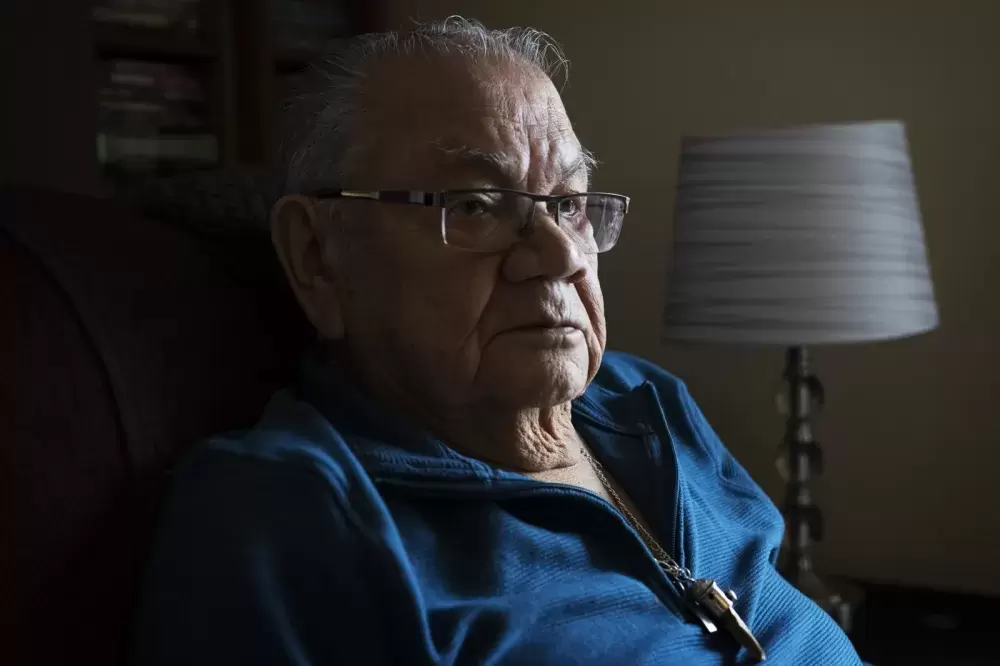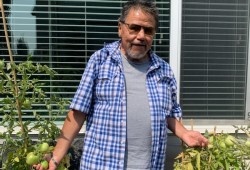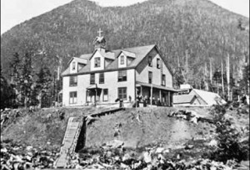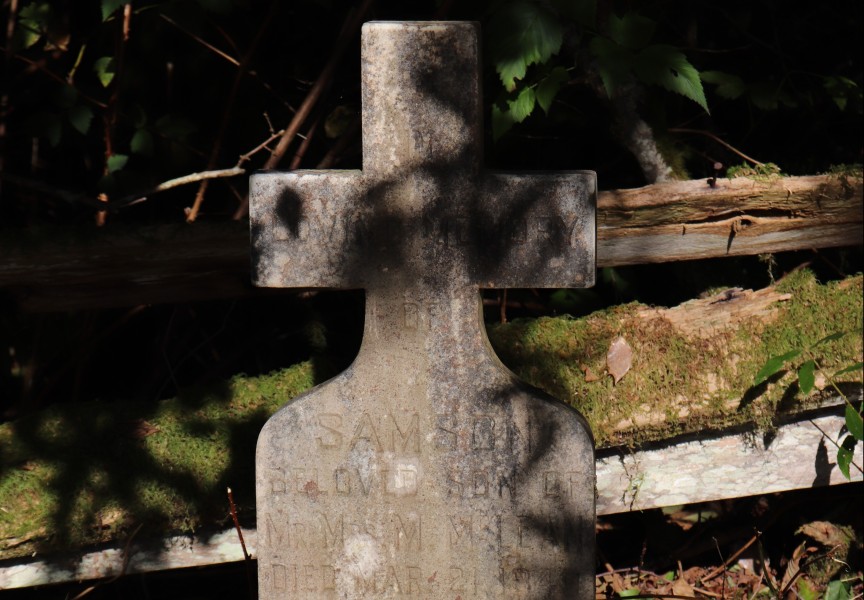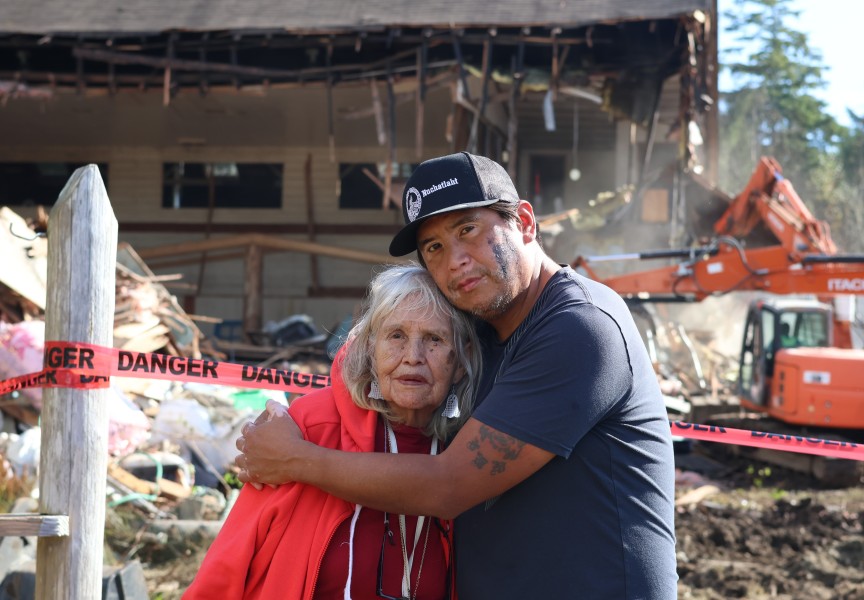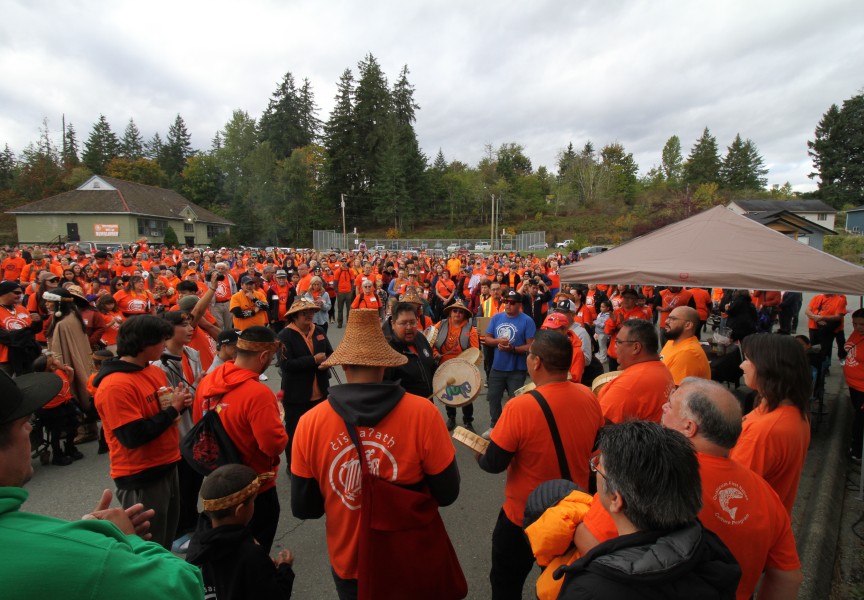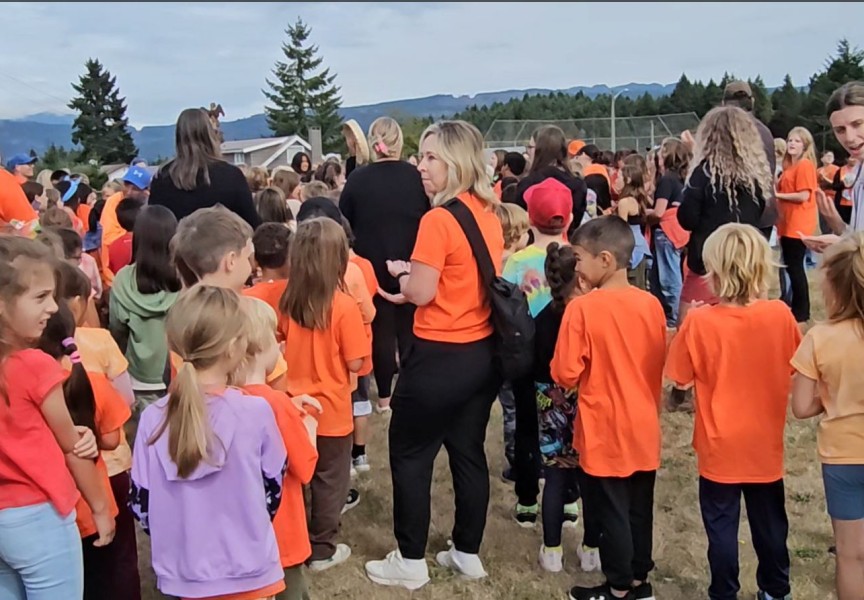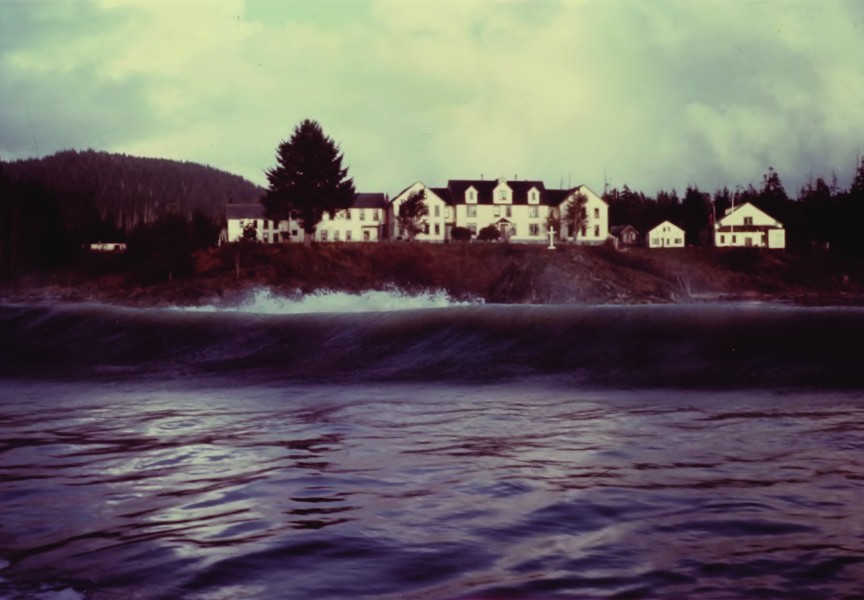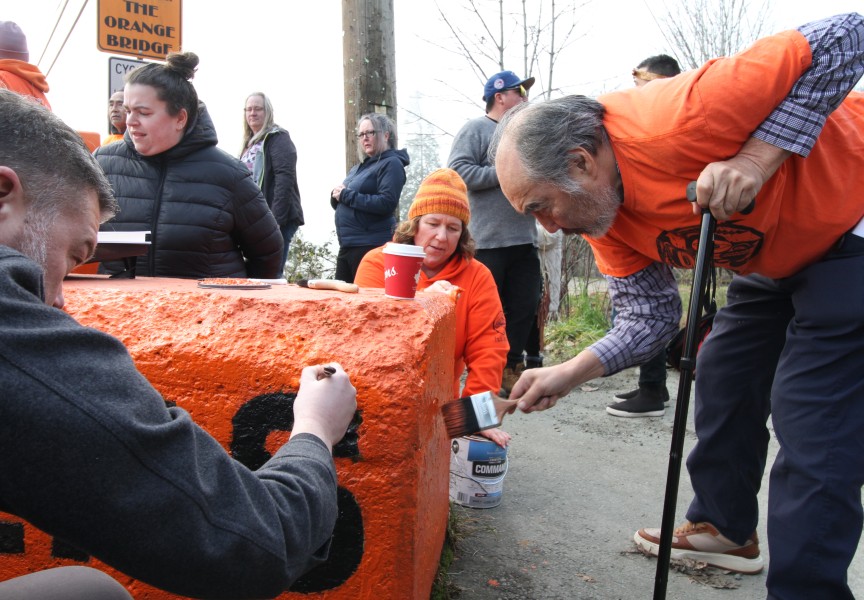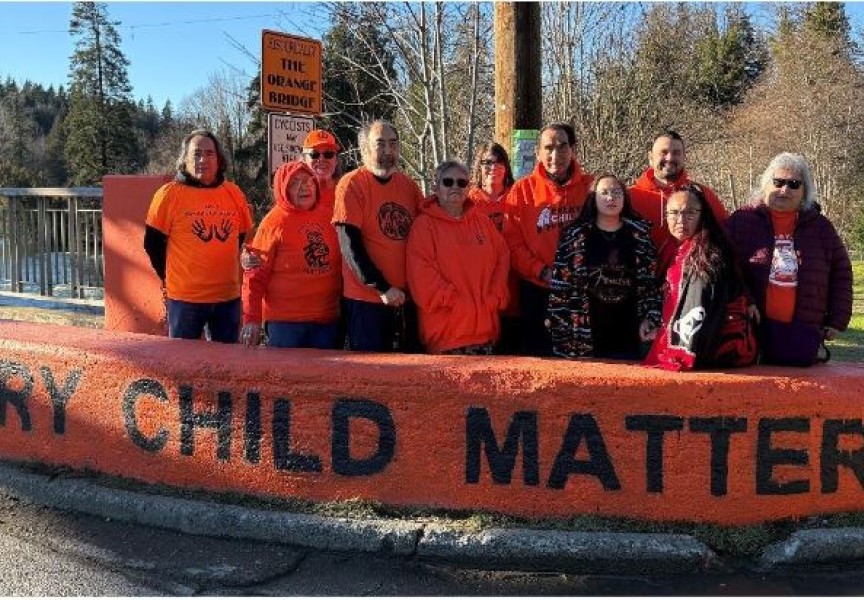This morning Barney Williams shed tears, as an apology from Pope Francis summoned distant emotions from his childhood in residential school.
“I think that there’s a lot of happy people like myself, breathing a sigh of relief and saying, ‘Finally’,” said the Tla-o-qui-aht elder, who attended Christie Residential School on Meares Island as a child, followed by a stint in Kamloops at a Catholic-run high school. “I feel better that it’s happened now.”
After a week of hearing from Canada’s First Nations, Métis and Inuit delegations who travelled to the Vatican, Pope Francis addressed the effects of the Catholic Church’s role in running most of Canada’s residential schools for over a century.
"I also feel shame...sorrow and shame for the role that a number of Catholics - particularly those with educational responsibilities - have had in all these things that wounded you, and the abuses you suffered and the lack of respect shown for your identity, your culture and even your spiritual values," said the Pope. "For the deplorable conduct of these members of the Catholic Church, I ask for God's forgiveness and I want to say to you with all my heart, I am very sorry. And I join my brothers, the Canadian bishops, in asking your pardon."
The papal apology follows an unsuccessful request from Prime Minister Justin Trudeau, who travelled to the Vatican in May 2017. Ten months later the Prime Minister received a letter from a top representative of the Catholic Church in Canada, saying that an apology would not be issued, giving no explanation.
But requests proved to be more successful after the remains 215 people were found in the former grounds of the Kamloops Indian Residential School in late May 2021. After the Tk'emlúps te Secwépemc First Nation announced this finding on its land, a series of similar discoveries followed on former residential school sites across Western Canada.
An apology from the Catholic Church was among the Truth and Reconciliation Commission’s Calls to Action in 2015. As a member of the survivors committee, Williams had an integral role in the TRC. He doesn’t expect that the papal apology will satisfy everyone.
“I’m not sure it’s going to help everybody,” said Williams. “A lot of people are still angry that a lot things weren’t done before. We think of families we’ve lost from alcoholism, drug abuse – it all stems from that dark chapter in Canadian history.”
Bernard Jack continues to feel the effects of his time at Christie, and was shaken when the Pope’s address was publicized.
“It just made me think of all those priests and nuns that touched me,” said Jack, who saw the assimilationist nature of residential school create distance within his family. “We just lost all connection with people, with our own relatives.”
Multiple accounts of abuse also came from residential schools run by other churches, such as the Alberni Indian Residential School, which was managed by the United Church when Charlie Thompson attended.
“Some of us were being abused by boys and girls too,” he said. “That’s what space was created, they made us into something that we weren’t supposed to be.”
“We didn’t know how to be parents when we started having children. We put our children through what we went through, and worse,” continued Thompson, referencing a tragedy that hit his Ditidaht community on Nitinaht Lake March 26. “Take an example at my village, this young man got stabbed by his brother for over drinking. Alcohol and drugs are a way over the years of taking care of the abuse, taking care of the pain to try and hide it, try and cover it up.”
Now that the Catholic Church has addressed the abuses of some of its members at the institutions, Williams would like to see more mental health supports for school survivors who often face multi-week waiting periods when they seek help.
“It’s still a waiting list when you go in,” he said. “The guy needs help right now.”
“Voicing an apology is never enough unless you take responsibility for what happened to innocent children,” stressed Thompson. “What is that abuse worth? How can you be compensated for something that you had no part of? That you were an innocent child taken advantage of by men and women. You can’t leave the nuns out of this, they were part of it too.”
Although the traditions were introduced under forced circumstances, some former residential school students continue to use Catholic practices as they recover from past abuse. Jack sometimes wears a rosary as he leaves his recovery group home in Calgary to talk walks around the block.
“I had really nothing to believe in, and I only wore that rosary when I was feeling lost,” said the former Christie student, although he hopes to benefit from more Indigenous culture as pandemic measures are eased. “I just had a session yesterday with my elder, now that the restrictions have been lifted, I’m going to try to get back to their spirituality: smudges, drumming and even back to the sweats. I’d rather go that way than kneel down and hold my rosary, that’s hard to forgive that way.”
During his address to the Indigenous delegations, Pope Francis noted that he hoped to visit Canada to address the issue further, some time around the Feast of St. Anne on July 26.

